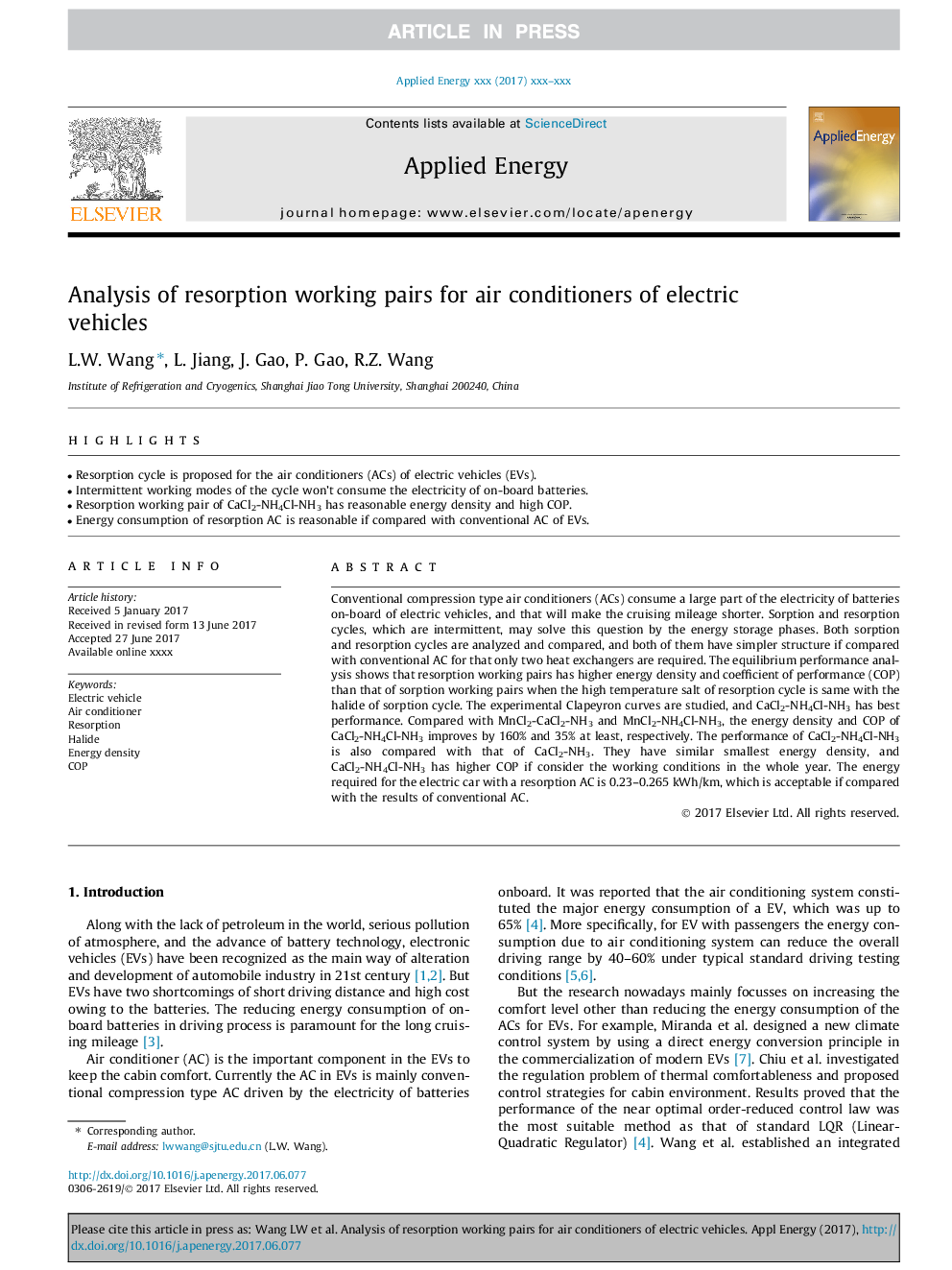| کد مقاله | کد نشریه | سال انتشار | مقاله انگلیسی | نسخه تمام متن |
|---|---|---|---|---|
| 6681954 | 1428083 | 2017 | 10 صفحه PDF | دانلود رایگان |
عنوان انگلیسی مقاله ISI
Analysis of resorption working pairs for air conditioners of electric vehicles
ترجمه فارسی عنوان
تجزیه و تحلیل جفت کار جذب برای سیستم های تهویه مطبوع وسایل نقلیه الکتریکی
دانلود مقاله + سفارش ترجمه
دانلود مقاله ISI انگلیسی
رایگان برای ایرانیان
کلمات کلیدی
موضوعات مرتبط
مهندسی و علوم پایه
مهندسی انرژی
مهندسی انرژی و فناوری های برق
چکیده انگلیسی
Conventional compression type air conditioners (ACs) consume a large part of the electricity of batteries on-board of electric vehicles, and that will make the cruising mileage shorter. Sorption and resorption cycles, which are intermittent, may solve this question by the energy storage phases. Both sorption and resorption cycles are analyzed and compared, and both of them have simpler structure if compared with conventional AC for that only two heat exchangers are required. The equilibrium performance analysis shows that resorption working pairs has higher energy density and coefficient of performance (COP) than that of sorption working pairs when the high temperature salt of resorption cycle is same with the halide of sorption cycle. The experimental Clapeyron curves are studied, and CaCl2-NH4Cl-NH3 has best performance. Compared with MnCl2-CaCl2-NH3 and MnCl2-NH4Cl-NH3, the energy density and COP of CaCl2-NH4Cl-NH3 improves by 160% and 35% at least, respectively. The performance of CaCl2-NH4Cl-NH3 is also compared with that of CaCl2-NH3. They have similar smallest energy density, and CaCl2-NH4Cl-NH3 has higher COP if consider the working conditions in the whole year. The energy required for the electric car with a resorption AC is 0.23-0.265Â kWh/km, which is acceptable if compared with the results of conventional AC.
ناشر
Database: Elsevier - ScienceDirect (ساینس دایرکت)
Journal: Applied Energy - Volume 207, 1 December 2017, Pages 594-603
Journal: Applied Energy - Volume 207, 1 December 2017, Pages 594-603
نویسندگان
L.W. Wang, L. Jiang, J. Gao, P. Gao, R.Z. Wang,
